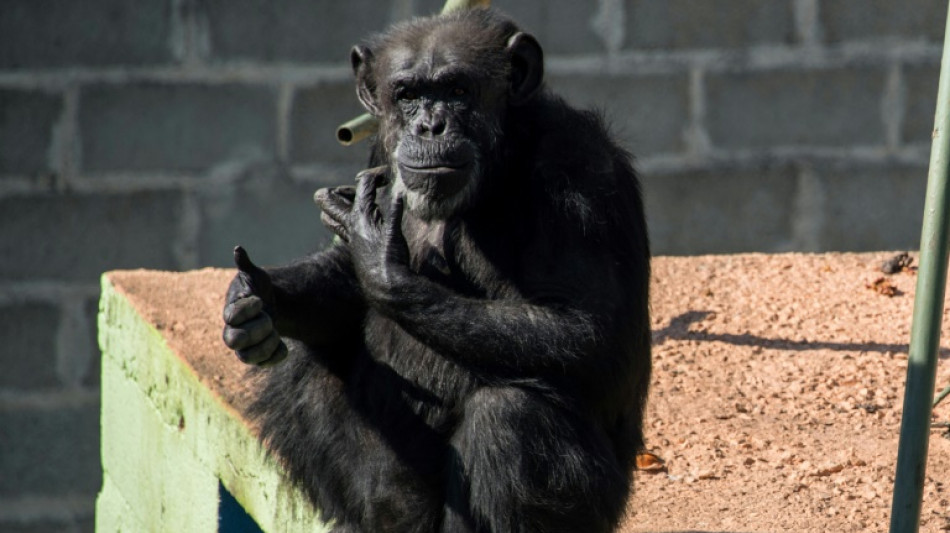
-
 Inothewayurthinkin denies Mullins, Galopin Des Champs Gold Cup hat-trick
Inothewayurthinkin denies Mullins, Galopin Des Champs Gold Cup hat-trick
-
Inothewayurthinkin beats Galopin Des Champs to win Cheltenham Gold Cup

-
 Sebastian Coe criticises IOC election process
Sebastian Coe criticises IOC election process
-
Israel PM, security agency fight it out in public

-
 Courtois returns from Belgium exile for Nations League duty
Courtois returns from Belgium exile for Nations League duty
-
Dupont absence 'changes nothing' for Alldritt before France's Six Nations decider

-
 Russia 'committed crimes against humanity' in Ukraine: UN probe
Russia 'committed crimes against humanity' in Ukraine: UN probe
-
Trump hails 'productive' truce talks with Russia, urges Putin to spare Ukrainians
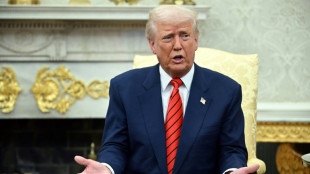
-
 Hundreds of Olympians call on IOC candidates to make climate top priority
Hundreds of Olympians call on IOC candidates to make climate top priority
-
Florence cathedral closed as Italy's Tuscany on flood alert

-
 Mark Carney: Canada's new PM charted unusual path to power
Mark Carney: Canada's new PM charted unusual path to power
-
Arteta 'proud' of Lewis-Skelly's England call-up

-
 Mark Carney sworn in as Canada PM
Mark Carney sworn in as Canada PM
-
US govt shutdown in balance after top Democrat avoids fight
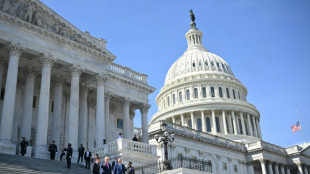
-
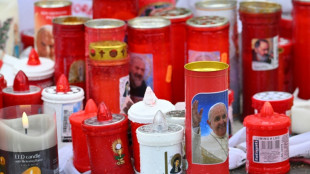 Pope marks month in hospital as footballers send messages
Pope marks month in hospital as footballers send messages
-
Crew launch to ISS paves way for stranded astronauts' homecoming

-
 Hamas says ready to free Israeli-US hostage, four bodies
Hamas says ready to free Israeli-US hostage, four bodies
-
Wainwright says Wales want to send Sherratt out on Six Nations high

-
 Just looking at images of nature can relieve pain, study finds
Just looking at images of nature can relieve pain, study finds
-
Guardiola relishing 'big fight' for Champions League qualification

-
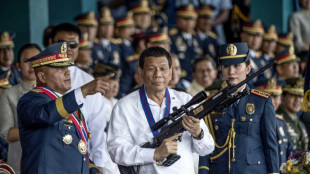 Duterte follows ICC hearing over drug war case via videolink
Duterte follows ICC hearing over drug war case via videolink
-
Mark Carney to be sworn in as Canada PM

-
 Chelsea can be flexible, says Maresca
Chelsea can be flexible, says Maresca
-
UN migration agency laying off around 20% of HQ staff amid US aid cuts: sources

-
 Pique denies Rubiales kickbacks in Spanish Super Cup move to Saudi
Pique denies Rubiales kickbacks in Spanish Super Cup move to Saudi
-
Tuchel hopes to bring Premier League power to England reign

-
 UN chief promises to do "everything" to avoid food cuts to Rohingyas in Bangladesh
UN chief promises to do "everything" to avoid food cuts to Rohingyas in Bangladesh
-
UniCredit gets ECB nod on Commerzbank stake, but delays merger decision

-
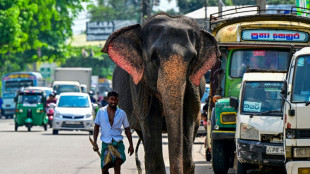 Sri Lanka adjusts train timings to tackle elephant deaths
Sri Lanka adjusts train timings to tackle elephant deaths
-
Scotland out to 'disrupt' France's Six Nations title hopes, says Russell

-
 BMW expects big hit from tariffs after 2024 profits plunge
BMW expects big hit from tariffs after 2024 profits plunge
-
Bayern's Kim sidelined for 'several weeks' with injury

-
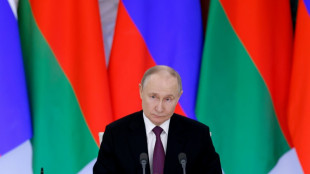 Kremlin says Putin sent 'additional' signals to Trump on ceasefire
Kremlin says Putin sent 'additional' signals to Trump on ceasefire
-
Funding cuts force WFP to stop food aid to one million in Myanmar
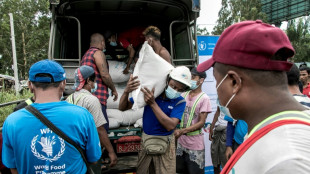
-
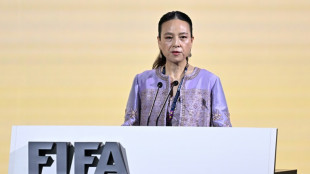 Thai football body to sue former chief over finances
Thai football body to sue former chief over finances
-
Spain call up Asencio for Nations League quarters

-
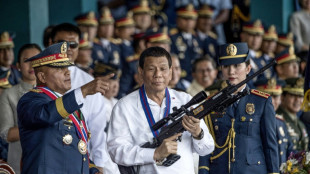 Duterte set to face ICC judges in drug war case
Duterte set to face ICC judges in drug war case
-
Gold tops $3,000 for first time on Trump tariff threats

-
 Canada's Carney to be sworn in as new PM
Canada's Carney to be sworn in as new PM
-
Brignone on verge of World Cup glory with La Thuile super-G triumph

-
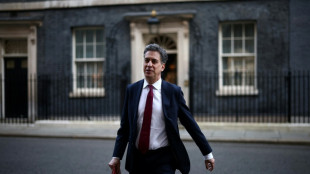 UK energy minister heads to China to talk climate
UK energy minister heads to China to talk climate
-
Fernandes hits back at Ratcliffe over 'overpaid' jibe

-
 Liverpool's Alexander-Arnold to miss League Cup final in injury blow
Liverpool's Alexander-Arnold to miss League Cup final in injury blow
-
'God never sleeps': Philippines opponents of Duterte's drug war

-
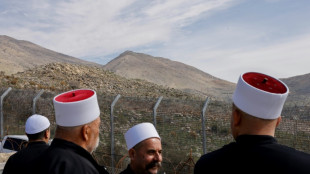 Syrian Druze cross armistice line for pilgrimage to Israel
Syrian Druze cross armistice line for pilgrimage to Israel
-
Thousands pay to catch glimpse of Ohtani practise in Tokyo

-
 French finance minister calls trade war 'idiotic', plans US trip
French finance minister calls trade war 'idiotic', plans US trip
-
UN chief in Rohingya refugee camp solidarity visit

-
 Rashford, Henderson recalled in Tuchel's first England squad
Rashford, Henderson recalled in Tuchel's first England squad
-
WFP says funding shortfall forces it to cut food aid to 1 mn people in Myanmar
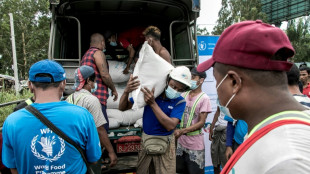

Swiss region votes on giving primates fundamental rights
A northern Swiss region will vote Sunday on whether non-human primates should enjoy some of the same basic fundamental rights as their human cousins.
The vote in the Basel-Stadt canton, which is home to the city of the same name and to one of Europe's best-known zoos, is being keenly followed by animal rights activists.
- Giving primates 'integrity' -
Triggered by the campaign group Sentience under Switzerland's direct democracy system, the regional vote concerns whether to give primates the right to life and the right to "mental and physical integrity".
"This will mark the first time worldwide that people can vote on fundamental rights for non-human animals," the group claims.
Basel-based Sentience says primates are highly intelligent and maintain an active social life, and feel pain, grief and compassion.
However, they cannot defend themselves against interventions in their lives -- so humans need to take responsibility and grant them rights, says Sentience.
The group says some 150 primates live in the canton, which borders France and Germany.
- Legal challenge -
In 2020, Switzerland's Supreme Court deemed a public vote on the topic was valid, rejecting an appeal.
It found that the proposal would not extend fundamental rights to animals -- but instead introduce specific rights for non-human primates.
However, it said the proposal would only bind the cantonal and municipal authorities in Switzerland's third-biggest city, and "not directly private persons".
The impact on private research institutions, and on Basel Zoo -- in the hands of family shareholders -- would therefore be limited.
And, according to the court, the local authorities and their public bodies do not have any primates.
- Establishing the law -
The vote is "a statement of intent so that primates live in better conditions," said Pedro Pozas, the Spanish director of the Great Apes Project, an international movement which demands a set of rights.
Animal defenders say the vote is highly symbolic. Its scope could be very wide, said Steven Wise, a US lawyer specialising in animal rights.
The vote "would give certain rights to primates, which would have to be litigated out as to what rights those are", he told AFP.
Wise said the proposal raises several questions, including who would plead a primate's case in court if its rights were violated?
If the vote goes through, Swiss courts would meanwhile not be the first to hear such cases.
In 2017 in Argentina, a court granted a female chimpanzee the right not to be imprisoned without trial, under habeas corpus. It was the first chimpanzee in the world to benefit from this right.
Wise said the animal rights movement was trying to "break through the barrier" limiting the extent to which rights can be applied.
He compared the situation to previous battles to extend rights among humans, citing children, women or racial minorities.
Pozas said the United Nations should also make a declaration on the rights of great apes.
- Euthanasia question -
While the proposed new law would only concern primates kept by public bodies, Basel Zoo board member Olivier Pagan fears a spillover effect on their primates.
"If the initiative was adopted, the scrutiny of their well-being and safety would no longer be the responsibility of experienced biologists, veterinarians and experienced caregivers, but of a mediator... or even unqualified lawyers," he said.
When a primate is in serious pain, it might not be possible to end its suffering, under the right to life clause.
Zoo veterinarian Fabia Wyss said: "If the initiative is adopted and if I decide to put the animal to sleep, I put myself beyond the law."
"But by letting an animal suffer unnecessarily, I am also equally culpable."
T.Bondarenko--BTB


